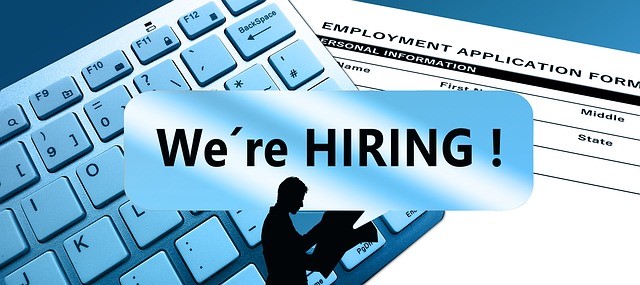
I think we have all been there. Lost a job, given fewer work hours, or had to take unpaid time off from work due to an injury. We have all had to make a decision to skip a payment on the credit card bill.
But if I do that, what actually happens?
This article is going to go deep in-depth on this subject. The quick answer is you can expect late fees, higher interest, annoying phone calls, missed payment letters in the mail, lawsuit threats, etc.
If you keep reading, I have listed not only a timeline of what happens when but also possible solutions to help you pay off your credit card debt when you can’t afford to.
First 30 Days
The first 30 days doesn’t have much effect. Credit card companies know missing one due date could be caused by a lot of outside factors.
People are human after all. I’ve had friends who went on vacation and forgot to pay the bill before they left. Sometimes during the holidays, we all get so busy a due date could be missed.
There won’t be threats or collection agencies trying to track you down.
You will get a phone call reminder as well as a reminder by mail. If it isn’t paid before your next bill goes out there will be an extra highlighted line showing your past due amount.
The worst thing you will endure is having to pay an additional late fee for the past due month as long as you don’t have a history of being late.
Late credit card fees can range from $29 to $40 USD. It depends on the credit card company. The exact amount is listed in the fine print of your monthly bill.
90 Days (3 Months) to 180 Days (6 Months)
Ok, 3 months to 6 months is your last chance to work with your credit card company. At this point, you are receiving at least 5 phone calls per day, possibly text messages, and maybe a weekly letter.
The credit card company is trying to recover their money before they write it off.
The companies will write off a bad account at the 6-month mark for the tax break. Once they write off the account they will sell it to a collection agency.
They may be able to recover some of the money from the sale in order to scare you into paying your bill.
Before then they will raise your interest rate and continue to add a late fee for every month you are late. If you have a checking account or savings account with the same bank as your credit card.
They may have a fail-safe written in your credit card contract stating they can pull payment for your monthly bill from that checking or savings account; if there is enough to cover the payment.
The credit card company could even close your credit card account.
The good news is there is a way to negotiate with your credit card company to settle your debt with them.
Hardship Programs
If any of you have student loans you are familiar with the term hardship.
What most people are not aware of is that credit card companies have programs like these in order to help people pay off their credit card debt.
Keep in mind that credit card companies want their money more than they want to send it to collections.
If you are behind in your payments between the 3 months to 6 months mark you are more likely to qualify for this program. But if you have been paying your other credit card bills and only ignoring one.
The company is less likely to accept your request for a hardship program. That information will show on your credit score.
What is a hardship program?
Most programs consist of lowering your minimum monthly payment, lowering your interest rate, forgiving over-limit and late fees, or even offer an extension on repayment terms.
In return, the company may ask that you close the account so you can’t continue to increase the debt on that account. This won’t prevent your ability to keep your credit cards with other companies.
What the company is willing to offer you depends on how dire your situation really is.
If you would like to read examples of actual customers being approved for Chase’s hardship program click here.
More Articles You May Be Interested In:
When Credit Cards Hurt Your Finances
The Ultimate Guide To Budgeting
How Do I Get Out of Debt With Bad Credit?
Unemployed & Can’t Pay The Bills?
Debt Settlement
Debt settlement is when the credit card company is willing to take 50% to 80% of the total amount you owe instead of the entire debt balance.
Despite the advertisements, you may run across when searching for information like this on the internet. You don’t need a lawyer or a debt settlement company to do this for you.
Based on how far behind you are the credit card company can see that you are struggling to pay your bills. Just tell them your situation and see if you can come to an agreement.
Make sure to get the agreement in writing from the company before you make a payment. This will prevent it from becoming your word against theirs.
Effects On Your Credit Score
Let’s take a moment to consider the big picture regarding skipping a credit card payment. Your credit score isn’t the only thing taking a hit.
If you miss even one payment you are going to be looking at a late fee being charged to your account.
Your creditor could also decide to increase your interest rate. This step is most likely to happen within the first 30 days if you have a history of being late.
What this means is your credit card balance is going to start getting eaten up by these extra charges. If they max out your credit card balance you will be charged another fee for every month you are over your credit card limit.
With that being said I want you to start thinking of your credit card score as your reputation with creditors. This score is what they use to judge whether or not you are trustworthy to repay what you borrow.
Not paying your credit card for more than 60 days can drop your credit score drastically; even if all of your other bills are paid on time.
What exactly does this mean?
A delinquent bill on your credit score will prevent you from being able to purchase a cell phone, rent a place to live, get car insurance, or even find a job.
How shocking is that last one?
Employers don’t want to hire someone with a low credit score because they are high risk for theft or could cost the company more money per year by processing wage garnishment (debt is automatically taken from your paycheck before you receive it.)
If the government or a judge rules that money will be taken directly from your paycheck to pay a debt before you get it, the company has to comply.
This means more man-hours to calculate the payroll and make sure the money is going where it is supposed to by law.
When you started reading this section did you think the consequences would be this intense?
Since I know you are wondering, one late payment can drop your credit score by 90 to 110 points.
Also, if your creditor decides to take the loss and never complete the collection of payment from you, an open-ended delinquent charge will remain on your credit score.
For at least 7 years!!!
Debt Collector Scare Tactics
The reason why I wanted to add an overview of this information is that debt collectors know if they successfully scare someone who is behind on bills they will get paid faster. They don’t care if their tactics are illegal.
Here is what to look out for:
- Make sure you have the debt complaint in writing from the collector. If they call you on the phone don’t take it at face value. You have a right to 30 days to dispute the claim.
- If you feel threatened or if something regarding the debt collection is out of place file a complaint with the Federal Trade Commission. It’s possible the creditor contacting you could be a fraud. Protect yourself at all costs!
- Consult with a debt counselor if you know you are going to be contacted by debt collectors and consider your options for debt consolidation or debt management plan. (check out my debt settlement blog.)
- File a cease-and-desist letter with the court. This doesn’t prevent them from calling you in the beginning. However, it makes it illegal for them to call you. All you have to do is keep a log of their contact and turn it into the Federal Trade Commission who enforces your letter. This governing body enforces the Fair Debt Collection Practices Act.
- Don’t let them tell you your credit score will be fixed. It is already damaged and will take years to repair.
- Do not pay large down payments upfront! This is not a government requirement. The agents are just trying to collect a commission from their company by obtaining as much money upfront from you as possible.
This is not all of the possible scare tactics but I feel these are the most important to know. These are also the most common.
In the end, do whatever it takes to protect yourself!
Concluding Thoughts
Times are hard especially right now with a good portion of the country out of work. Deciding to miss a credit card payment is understandable.
However, before you skip consider contacting all of your credit card companies and asking about their financial hardship programs. You might be able to strike a deal that protects your credit score.
If you have a history of being late with payments you are still eligible for a hardship program. The creditors just want their money.
Finally, DO NOT let a bill collector scare you into paying them. You are entitled to 30 days to dispute a claim they are trying to collect. Get everything in writing, NO EXCEPTIONS!
More Articles You May Be Interested In:
When Credit Cards Hurt Your Finances
The Ultimate Guide To Budgeting
How Do I Get Out of Debt With Bad Credit?
Unemployed & Can’t Pay The Bills?
Looking for more ways to save? Get a copy of my free ebook by subscribing below. BONUS: get my weekly posts sent directly to your email on Wednesdays.
Don’t Miss Out!
[mc4wp_form id=”77″]
Subscribe and you'll receive our weekly posts right in your inbox. You'll also be one of the first to be notified when our free budget course opens. Hope to see you there!





